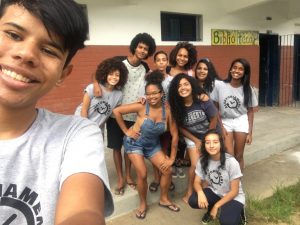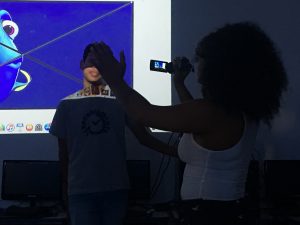
This Spring, a former Ed.D. student, Roszena Haskins (‘17) will begin facilitating the third and final module of the 2017-18 PreK-3 Leadership Program at the University of Connecticut. The module titled, Leading for Equity, Excellence and Early Success, covers a variety of topics with the ultimate goal of preparing educators to build a school culture led by caring, competent, and well rounded leaders.
Like all the facilitators who join the PreK-3 Leadership Program team, Haskins is an expert in her field. She has over 20 years of experience as an educator and a strong passion for equity and diversity. Currently serving as the West Hartford Director of Adult and Continuing Education and the district’s Director of Diversity Advancement, Haskins works with other members of West Hartford Public School’s Equity and Diversity Council to strengthen the cultural competence of the district and advance institutional equity. Her multiple roles in district-wide early education and diversity initiatives require her to stay up-to-date on ever-changing federal, state, and local policy changes. This expertise coupled with a commitment to the children, caregivers, and community has prepared Haskins for her upcoming role as an instructor with the PreK-3 Leadership Program.
Haskins is excited to share her experiences as she explains, “Navigation across agencies, organizations, and constituents is something I enjoy personally and professionally and hope to contribute to the PreK-3 Leadership Program.”
In addition to her direct experience in the field, Haskins is an accomplished researcher. Her doctoral dissertation for the University of Connecticut’s Ed.D. program focused on Black and Latino students disproportionately leaving college without a degree as a result of low access to college-level courses and extended time spent completing developmental education requirements. She bridges her research and the importance of initiatives like the PreK-3 Leadership program by explaining,
“Longitudinal research shows that investing in high quality early education programs, leveraged by highly competent, knowledgeable and skillful leaders promotes post-secondary success and improved life changes as adults.”
Haskins looks forward to working with other state leaders, as well as the Expert Advisory Panel, who are passionate about early childhood development and inclusion. She stated, “I continue to be eager to contribute to building the leadership capacity of committed educators through an equity-focused lens.”
The PreK-3 Leadership Program is thrilled to Dr. Haskins on board, as Program Director Dr. Karen List describes her as “very hard working,” with a “strong background in diversity and PK-12 leadership,” Dr. List adds,
“She genuinely connects with people. The importance of relationships is evident in her style.”

